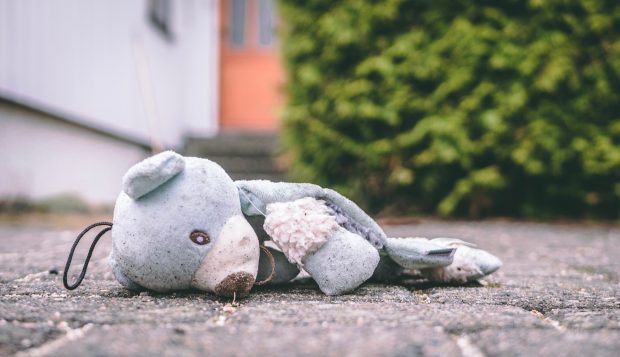
Our National Director for Social Care, Yvette Stanley, talks about domestic abuse and the findings from our latest joint inspections.
Domestic abuse claims the lives of two women a week. There are an estimated 6.5 million adults who have suffered domestic abuse. And in a classroom of 30 children, around six of those will have lived, or be living, with domestic abuse. Domestic abuse is an endemic, but not inevitable, problem. So, it’s important that we do not take our foot off the pedal, that we keep the conversation going.
Since we published our joint targeted area inspection (JTAI) report on domestic abuse in 2017, we’ve carried out domestic abuse JTAIs in two more areas. We wanted to expand on our evidence base and knowledge, as well as making it clear to local partners that this remains an important issue and one where we need to get practice right.
It’s not just Ofsted that recognises the urgency. Our fellow inspectorates for probation and police have published reports on domestic abuse too. The government has also re-introduced a domestic abuse bill in the Queen’s Speech.
The findings from all of these reports show that, although the children’s social care and police response to children living with domestic abuse is improving, there are still significant challenges. For example, there are significant concerns about the lack of effectiveness of Community Rehabilitation Companies (CRCs) in addressing domestic abuse, which I’ll discuss in more detail later.
In this blog, I want to set out some of the findings from our latest JTAIs and discuss what needs to improve.
Messages from our latest JTAIs
Our two latest JTAIs on domestic abuse mirror the findings of our 2017 overview report, ‘The multi-agency response to children living with domestic abuse’. While there are pockets of good practice, overall the same issues remain. We still need to recognise the cumulative effect of experiencing domestic abuse on children and not forget the long-term impact.
- In some cases, local agencies are still relying too much on adult victims of domestic abuse – who are also incredibly vulnerable – to keep their children safe.
- Written agreements are often ineffective because they place unrealistic expectations on the mother. These agreements do not always take into account the power relationship or focus enough on the perpetrator who needs to change their behaviour.
- Information is not always shared in a timely way, which means that the current risks and needs of the child are sometimes not understood.
- In cases where there are improvements in the child’s lived experience, this is usually due to effective multi-agency working. For example, this could include a one-stop shop for victims to access the help and support that they need from a range of agencies.
Social workers, the police, health professionals and other agencies, like youth offending teams and probation services, are often doing a good job to protect victims. But too little is being done to prevent domestic abuse in the first place and to repair the damage it causes afterwards.
The focus on the immediate crisis leads agencies to consider only those people and children at immediate risk. Agencies are not always looking at the right things and, in particular, not focusing enough on the perpetrator.
The probation perspective
Many people receiving probation services are domestic abusers. In turn, domestic abuse constitutes a sizeable proportion of the work of CRCs. CRCs are private-sector suppliers of probation and prison-based rehabilitative services for offenders.
Our domestic abuse JTAI showed that probation services do not always contribute effectively to child safeguarding processes. There are delays, some considerable, in start dates for ‘Building Better Relationships’. This is the only accredited domestic abuse programme that the court can impose as part of a community sentence. Staff are not being empowered to manage domestic abuse cases and not enough is being done by CRCs to protect victims.
This echoes a 2018 thematic inspection carried out by HMI Probation looking at the work of CRCs, which found that:
- there is a lack of awareness and applied domestic abuse expertise in CRCs
- many offenders were drifting through their supervision period without being challenged or supported to change their behaviour, leaving their family at risk
- practitioners failed to act on new information indicating that children could be at risk
- practitioners often underestimated the level of harm victims and children were exposed to
- very little meaningful work had been completed in custody
- in the community, domestic abusers were not making enough progress. Many had completed little work to help them improve their relationships and behaviour
- workers relied too much on the decisions of other agencies, such as children’s social care and the National Probation Service, about levels of risk of harm. They often failed to see the monitoring of external controls, such as restraining orders or carrying out home visits, as an integral part of their work
- the quality of partnership working at a practice level was variable. Responsible officers were poor at challenging children’s social care decisions to close cases, trusting that social workers knew best.
Since this report, a number of decisions have been made about the future of probation. All offenders, including perpetrators of domestic abuse, will be managed by the National Probation Service. Her Majesty’s Prison and Probation Service is also working on a domestic abuse action plan in response to the report’s findings.

The police response
In February this year, the police inspectorate published the latest update on the policing response to domestic abuse. While HMICFRS found that the police response to domestic abuse continues to improve, they also recognised that significant challenges remain.
The report found that:
- in some cases, delays are impeding effective investigations and potentially putting victims of domestic abuse at serious risk of harm
- the number of arrests for domestic abuse-related crimes fell in 23 forces, despite the overall number of these offences increasing
- changes to the use of pre-charge bail could be making it easier for perpetrators to return to the abusive relationship. More are being released under investigation and not having bail conditions set, exposing victims to further potential harm
- the police are sometimes too slow in getting to domestic abuse incidents
- there are large differences in how Multi-Agency Safeguarding Hubs operate. This can lead to inconsistencies in how people are protected.
Working together to effect change
While improvements have been made, there is still much more that needs to be done to protect victims of domestic abuse and prevent it from happening in the first place. Two years on from our original JTAI, all indications point to the same challenges to effective partnership working, which mean victims are not always getting the support that they need.
Agencies can address these complex challenges. But domestic abuse is endemic, so they cannot do it alone. Education is crucial. As we have stated before, we need a widespread public service message to shift behaviour on a wide scale.
For our part, we’re working together as a group of inspectorates to make sure that children experiencing domestic abuse are on our agenda – as individual organisations and when we work together.
If we return to this deep dive in future JTAIs, I wonder what will we see? Will the messages from our joint and separate thematic work have resonated with the sector? Will we see more consistent and robust work with perpetrators? Will we see the right support for children and their families? I hope so.
Yvette Stanley is Ofsted's National Director for Social Care. Follow Yvette on Twitter. Keep up-to-date with social care news at Ofsted by signing up for email alerts. You can also follow Ofsted on Twitter.
1 comment
Comment by Jean Robinson posted on
This omits to mention the crucial importance of housing in domestic abuse - victims continuing to suffer it because of lack of alternative housing, and problems in re-housing families who have escaped to women's refuges
Jean Robinson